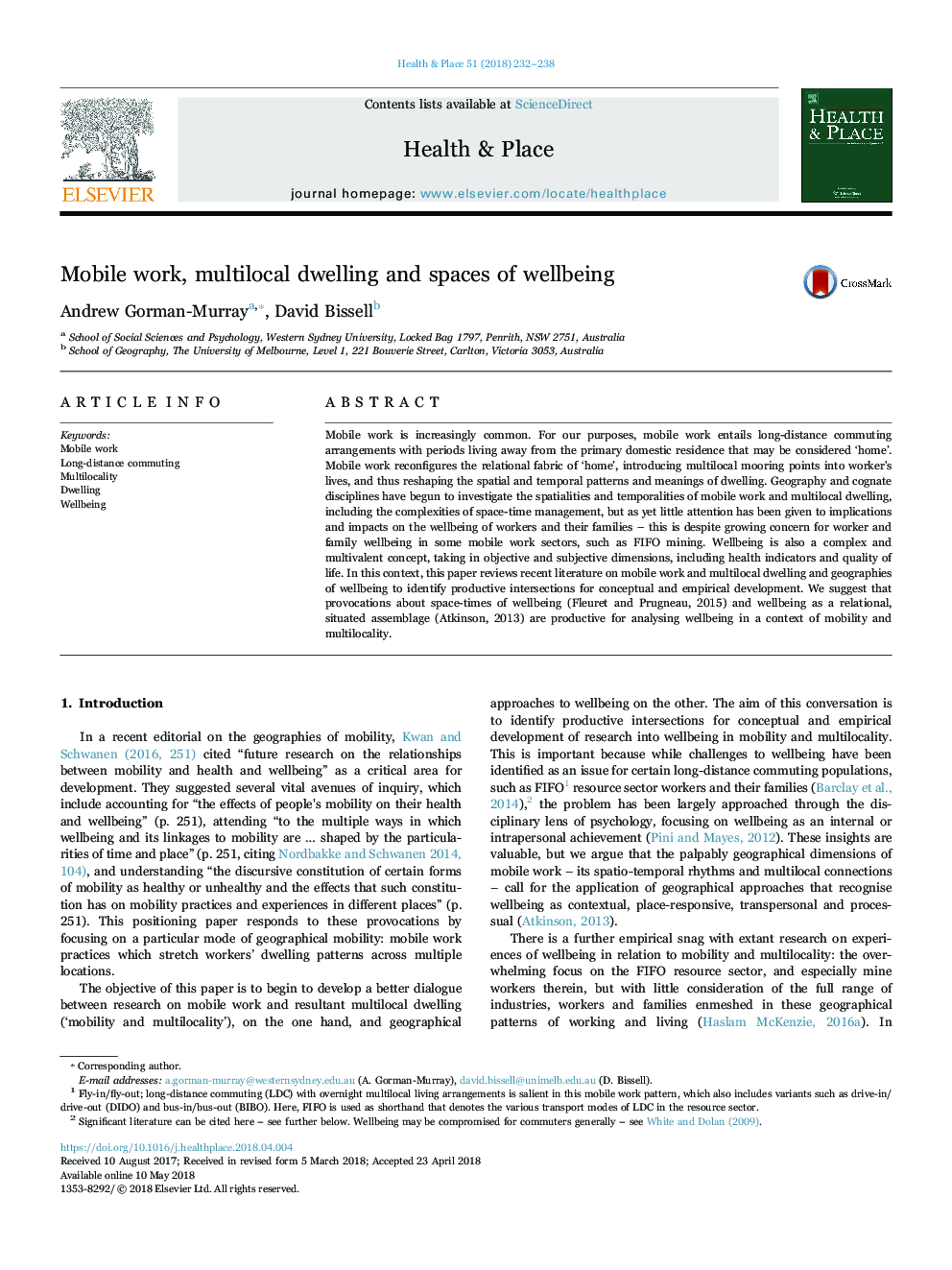| Article ID | Journal | Published Year | Pages | File Type |
|---|---|---|---|---|
| 7456908 | Health & Place | 2018 | 7 Pages |
Abstract
Mobile work is increasingly common. For our purposes, mobile work entails long-distance commuting arrangements with periods living away from the primary domestic residence that may be considered 'home'. Mobile work reconfigures the relational fabric of 'home', introducing multilocal mooring points into worker's lives, and thus reshaping the spatial and temporal patterns and meanings of dwelling. Geography and cognate disciplines have begun to investigate the spatialities and temporalities of mobile work and multilocal dwelling, including the complexities of space-time management, but as yet little attention has been given to implications and impacts on the wellbeing of workers and their families - this is despite growing concern for worker and family wellbeing in some mobile work sectors, such as FIFO mining. Wellbeing is also a complex and multivalent concept, taking in objective and subjective dimensions, including health indicators and quality of life. In this context, this paper reviews recent literature on mobile work and multilocal dwelling and geographies of wellbeing to identify productive intersections for conceptual and empirical development. We suggest that provocations about space-times of wellbeing (Fleuret and Prugneau, 2015) and wellbeing as a relational, situated assemblage (Atkinson, 2013) are productive for analysing wellbeing in a context of mobility and multilocality.
Keywords
Related Topics
Health Sciences
Medicine and Dentistry
Public Health and Health Policy
Authors
Andrew Gorman-Murray, David Bissell,
